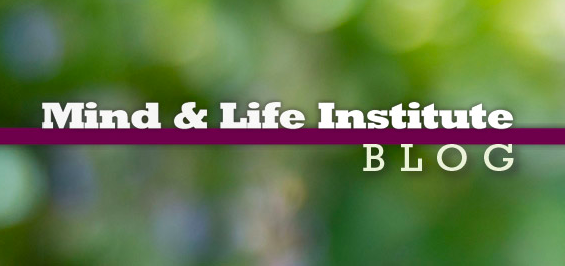This project will investigate the effect of nonattachment on social inclusion operationalized as (1) enhanced self-reported valuing of racial/ethnic diversity; (2) reduced linguistic intergroup bias – a tendency to describe outgroup behaviors more negatively and concretely than ingroup behaviors; and (3) reduced ingroup favoritism at the expense of the outgroup while allocating rewards to ingroup …
Topic Archives:
Mind & Life Speaks Out Against Racism
We sit with heavy hearts in the wake of George Floyd’s murder. This senseless loss has deepened wounds in the United States at a time when ongoing health and economic crises continue to disproportionately harm Black people. We are profoundly aware of the horrors of racism, reverberating with societal disconnection and continued fear and grief …
Self-compassion in adolescence: Validation and neural correlates
Before we move to examining the impact of contemplative practice on self-compassion in youth, we need an established, validated measure of self-compassion. This study will validate the Youth Self Compassion Inventory (YSCI) with multi-modal assessment of neural correlates of self-compassion using high-density electroencephalography (EEG) in a study of one hundred and thirty-two male and female …
Continue reading “Self-compassion in adolescence: Validation and neural correlates”
Mindfulness in the context of intractable intergroup conflicts: Can mindfulness practice help overcome barriers to conflict resolution?
Negative intergroup emotions and political perceptions play a crucial role in fueling intergroup conflicts. Recent studies demonstrate the benefits of using clinical research on emotion regulation to inform intergroup relations research. By employing effective ways to temper extreme negative group-based emotions, researchers are able to strengthen attitudes and views that promote reconciliation. We suggest that …
2020 President’s Call
Earlier this year Mind & Life completed a strategic visioning and planning process, to guide our expanding work through a lens of interconnection. We also began developing our digital efforts to have wider reach and greater impact on pressing contemporary issues. As such, Mind & Life is primed and eager to show up fully and …
2015 Mind & Life Dialogue XXX
Western science has advanced our understanding of many foundational issues in cognition, and has expanded psychological and philosophical explorations of the mind. Among the central topics addressed in this scientific endeavor are perception, concept acquisition, the nature of conceptual thought, and the role of language in cognition, and the origins and content of our sense …
Overcoming the self: A multi-method investigation of trait mindfulness, self-other overlap, and egocentricity in romantic relationships
Contemplative practices cultivate well-being in oneself but also foster other-oriented emotions, such as empathy, perspective-taking, and compassion. This may be due to a reduction in egocentric thought. However, the neural mechanisms behind how mindfulness reduces ego and how this might impact romantic relationships has not yet been explored. This study proposes a multi-method investigation of …
Mindfulness training to enhance emotion regulation in a polarizing political context: A multimethod investigation
Predominant theories of intergroup relations argue that ideological conflicts between American political groups are sustained by negative emotions. Cognitive reappraisal (CR), defined as the explicit reinterpretation of negative events, has been shown to reduce intergroup negative emotions. However, CR is limited in its applications to real-world political events. Mindfulness also appears to foster negative emotion …
Motivating engagement with social justice issues through compassion training: A multi-method randomized control trial
Working towards social justice necessitates dominant group members’ willingness to share the feelings of oppressed outgroup members (outgroup empathy) and to engage in difficult intergroup dialogue. Nevertheless, empathic and behavioral engagement is especially avoided in social justice contexts due to the high demands/costs of such engagement. It is, however, possible to offset high demands and …
How does self-compassion influence pain and self-related functioning in patients with chronic pain? A pilot RCT trial combining fMRI and experience sampling
Chronic pain is a major physical and mental health care problem, and is challenging to treat. In addition to pain, many patients feel bad about themselves and may experience guilt or shame. Self-compassion is an element of mindfulness-based interventions, and describes the skill of being kind and caring towards oneself. Thus, for patients with chronic …




